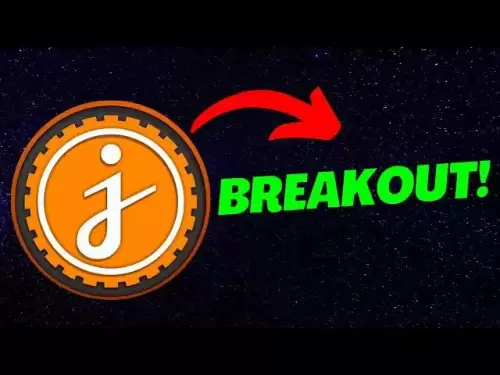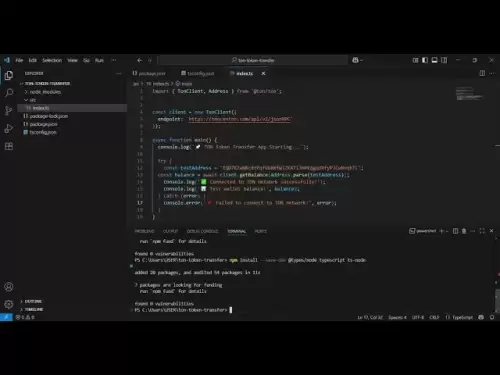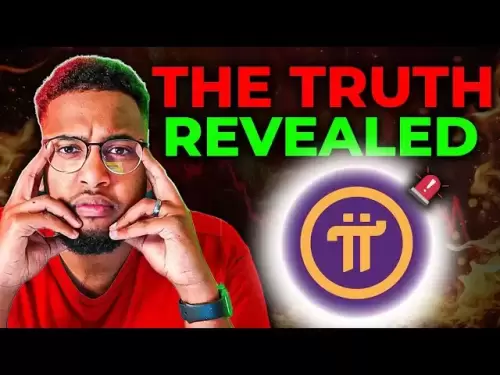-
 Bitcoin
Bitcoin $118,841.1054
1.02% -
 Ethereum
Ethereum $3,364.2689
7.44% -
 XRP
XRP $3.0337
3.93% -
 Tether USDt
Tether USDt $1.0004
0.04% -
 BNB
BNB $708.2059
2.49% -
 Solana
Solana $173.2385
5.74% -
 USDC
USDC $0.9999
-0.01% -
 Dogecoin
Dogecoin $0.2121
6.85% -
 TRON
TRON $0.3090
2.81% -
 Cardano
Cardano $0.7628
2.25% -
 Hyperliquid
Hyperliquid $46.8391
-2.08% -
 Stellar
Stellar $0.4537
0.15% -
 Sui
Sui $3.9529
-2.88% -
 Chainlink
Chainlink $16.6414
3.72% -
 Hedera
Hedera $0.2354
1.52% -
 Bitcoin Cash
Bitcoin Cash $499.1285
0.43% -
 Avalanche
Avalanche $22.6400
0.57% -
 Shiba Inu
Shiba Inu $0.0...01438
4.88% -
 UNUS SED LEO
UNUS SED LEO $8.8507
-0.64% -
 Toncoin
Toncoin $3.1498
2.35% -
 Litecoin
Litecoin $97.4954
1.21% -
 Polkadot
Polkadot $4.1541
1.50% -
 Monero
Monero $331.4406
-1.03% -
 Pepe
Pepe $0.0...01350
5.24% -
 Uniswap
Uniswap $8.9103
-5.01% -
 Bitget Token
Bitget Token $4.7540
4.51% -
 Dai
Dai $0.9999
-0.02% -
 Ethena USDe
Ethena USDe $1.0008
0.00% -
 Aave
Aave $322.3328
-1.63% -
 Bittensor
Bittensor $431.8026
-0.50%
What is an NFT domain?
NFT domains are blockchain-based assets offering decentralized ownership, unique identity, and simplified crypto transactions.
Jul 09, 2025 at 08:43 pm
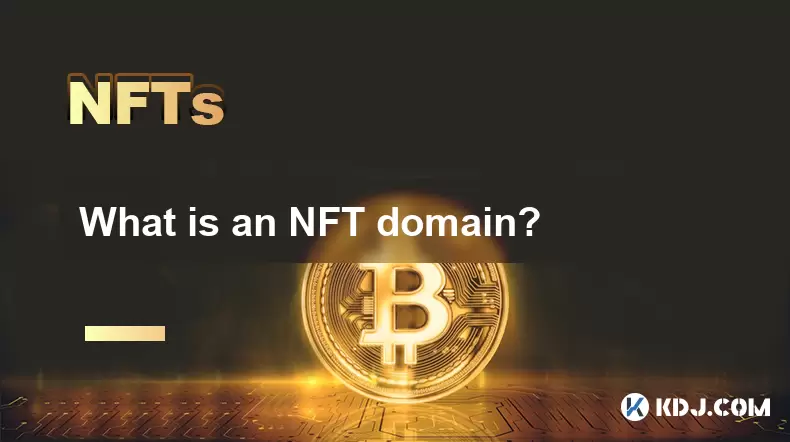
Understanding the Concept of NFT Domains
An NFT domain is a blockchain-based digital asset that represents ownership of a specific web address. Unlike traditional domains managed by centralized registrars like GoDaddy or Namecheap, NFT domains are stored on decentralized blockchains, offering users greater control and transparency. These domains often end in extensions such as .crypto, .zil, or .eth, depending on the platform issuing them.
The key feature of an NFT domain is its non-fungible token (NFT) structure, which means it is unique and cannot be replicated. This uniqueness ensures that each domain has verifiable scarcity and authenticity, making it appealing to collectors and investors alike.
How NFT Domains Work
NFT domains operate through smart contracts deployed on blockchain networks, primarily Ethereum or other compatible chains. When a user purchases an NFT domain, they receive full ownership rights recorded on the blockchain. This eliminates the need for intermediaries and allows direct peer-to-peer transactions.
Ownership grants several privileges, including the ability to create subdomains, host websites using decentralized storage solutions like IPFS, and even link cryptocurrency wallets directly to the domain. For instance, instead of sharing a long wallet address, a user can simply share their NFT domain name, simplifying transactions significantly.
To use an NFT domain, follow these steps:
- Connect your wallet: Use platforms like MetaMask or Trust Wallet to interact with NFT domain marketplaces.
- Browse available domains: Explore platforms such as Unstoppable Domains or Ethereum Name Service (ENS).
- Purchase the desired domain: Complete the transaction using cryptocurrency.
- Configure settings: Link the domain to your wallet or website hosting service.
Comparison Between Traditional and NFT Domains
Traditional domains require annual renewal fees and are subject to centralized governance. In contrast, NFT domains typically involve a one-time purchase with no recurring costs. Additionally, traditional domains can be seized or suspended due to legal disputes or policy violations, while NFT domains remain under the owner's control unless voluntarily transferred.
Another significant difference lies in data privacy and security. Since NFT domains leverage blockchain technology, they offer enhanced resistance against censorship and tampering. Users retain full authority over their digital identities without relying on third-party oversight.
Use Cases for NFT Domains
Beyond serving as simplified crypto addresses, NFT domains have practical applications across various sectors. Decentralized finance (DeFi) projects utilize them to establish brand identity within the ecosystem. Artists and creators employ NFT domains to showcase portfolios hosted on decentralized networks, ensuring content remains accessible regardless of server outages.
Businesses also benefit from integrating NFT domains into their operations. By linking company websites to immutable blockchain records, organizations enhance trustworthiness and streamline customer interactions. Furthermore, developers deploy decentralized applications (dApps) using NFT domains, providing seamless access points for users engaging with blockchain services.
Steps to Purchase an NFT Domain
Acquiring an NFT domain involves several straightforward actions tailored for both novice and experienced users. Begin by selecting a reputable marketplace specializing in NFT domains, such as Unstoppable Domains or ENS.
Follow this guide when purchasing:
- Set up a cryptocurrency wallet: Choose either MetaMask, Trust Wallet, or similar options compatible with the chosen platform.
- Fund your wallet: Transfer sufficient cryptocurrency (usually ETH or ZIL) to cover domain costs plus gas fees.
- Search for available names: Utilize filters provided by the marketplace to find desirable domain names matching your preferences.
- Complete checkout process: Approve the transaction via your wallet interface after verifying details carefully.
After acquisition, manage your NFT domain through the same platform where you bought it. Most marketplaces provide intuitive dashboards enabling easy configuration changes at any time.
Managing and Customizing Your NFT Domain
Once you own an NFT domain, customization options become available to suit personal or business needs effectively. Start by setting up redirects so visitors land on designated pages linked to your decentralized site. You may also assign multiple crypto addresses under different subdomains for improved organization.
For technical customization:
- Link to decentralized storage: Host static websites using IPFS or Filecoin to ensure permanent accessibility.
- Integrate with dApps: Allow seamless interaction between your domain and popular blockchain applications.
- Enable email forwarding: Some platforms support custom email aliases tied directly to your NFT domain.
Regularly review security settings associated with your NFT domain to prevent unauthorized modifications. Always keep recovery phrases secure and consider implementing multi-signature authentication methods if supported by the platform.
Frequently Asked Questions
What happens if I lose access to my NFT domain?
Since NFT domains reside on the blockchain, losing access usually means misplacing private keys connected to the owning wallet. Recovery depends solely on backup measures implemented during initial setup; there’s no central authority to appeal lost credentials.
Can I sell my NFT domain later?
Yes, owners can list their NFT domains on secondary markets like OpenSea or dedicated platforms. Pricing flexibility exists based on demand dynamics influenced by factors like name desirability and market trends.
Are NFT domains compatible with regular browsers?
Currently, mainstream browsers do not natively support NFT domains. However, browser extensions or specialized gateways enable viewing decentralized sites until broader adoption occurs.
Do NFT domains support multiple languages?
Support varies depending on the issuing protocol. While English characters dominate listings today, certain platforms explore multilingual capabilities to expand global inclusivity further.
Disclaimer:info@kdj.com
The information provided is not trading advice. kdj.com does not assume any responsibility for any investments made based on the information provided in this article. Cryptocurrencies are highly volatile and it is highly recommended that you invest with caution after thorough research!
If you believe that the content used on this website infringes your copyright, please contact us immediately (info@kdj.com) and we will delete it promptly.
- Coinbase's 'Everything App' Vision: Base App Unites Crypto, Social, and Payments
- 2025-07-17 08:30:13
- Aster: Revolutionizing DeFi with Perpetual Contracts on US Equities
- 2025-07-17 08:30:13
- XRP's Technical Uptrend: Riding the Wave of Institutional Momentum
- 2025-07-17 09:10:13
- Riding the XRP Surge: A Long-Term Strategy for Savvy Investors
- 2025-07-17 09:30:13
- Crypto Price Check: XRP and Solana Show Some Grit Amidst Market Jitters
- 2025-07-17 09:30:13
- TAC Mainnet & Altcoin Launch: DeFi on Telegram, But What About That $350 Price?
- 2025-07-17 08:50:13
Related knowledge
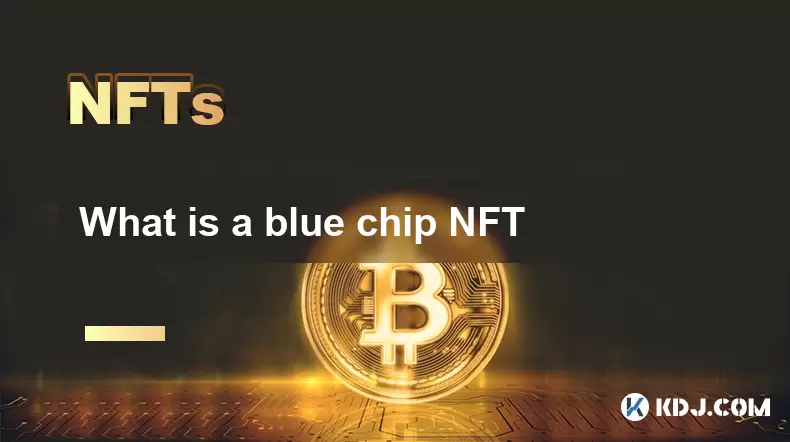
What is a blue chip NFT
Jul 17,2025 at 07:07am
Understanding the Concept of a Blue Chip NFTIn the world of non-fungible tokens (NFTs), certain digital assets stand out due to their consistent value...
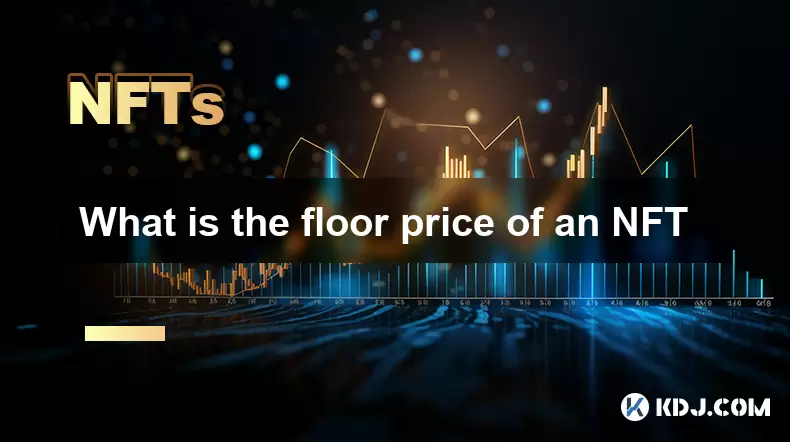
What is the floor price of an NFT
Jul 11,2025 at 07:56am
Understanding the Concept of Floor Price in NFTsIn the world of non-fungible tokens (NFTs), the floor price refers to the lowest price at which a part...
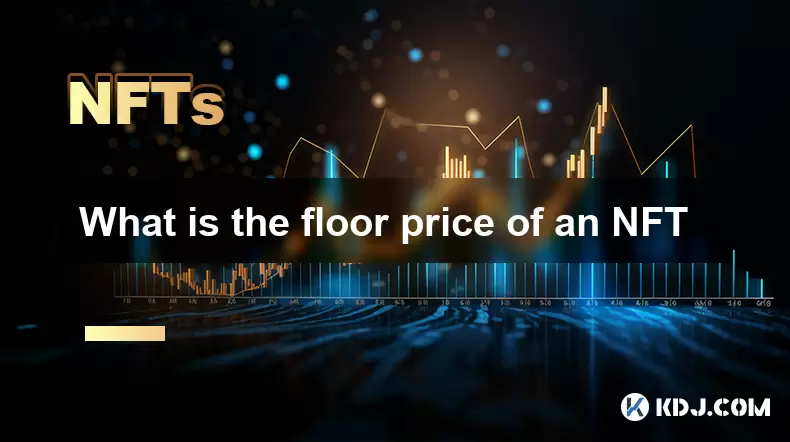
What is the floor price of an NFT
Jul 13,2025 at 06:21am
Understanding the Concept of Floor Price in NFTsThe floor price of an NFT (Non-Fungible Token) refers to the lowest listed price for a particular NFT ...
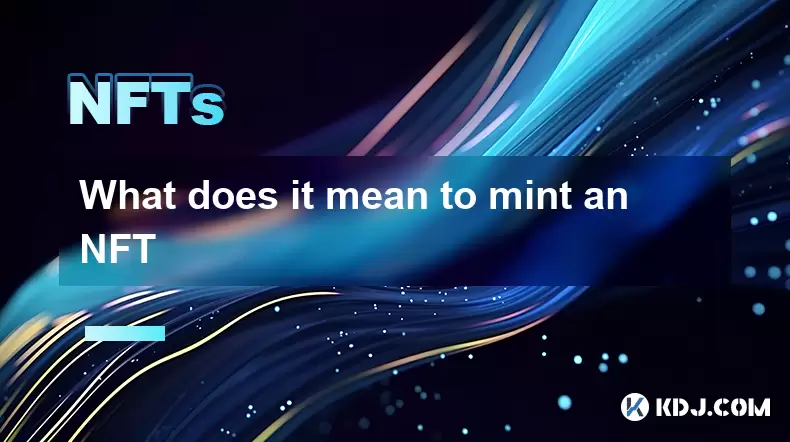
What does it mean to mint an NFT
Jul 11,2025 at 11:56pm
Understanding the Concept of Minting an NFTTo mint an NFT means to create a unique digital asset on a blockchain. This process involves converting a d...
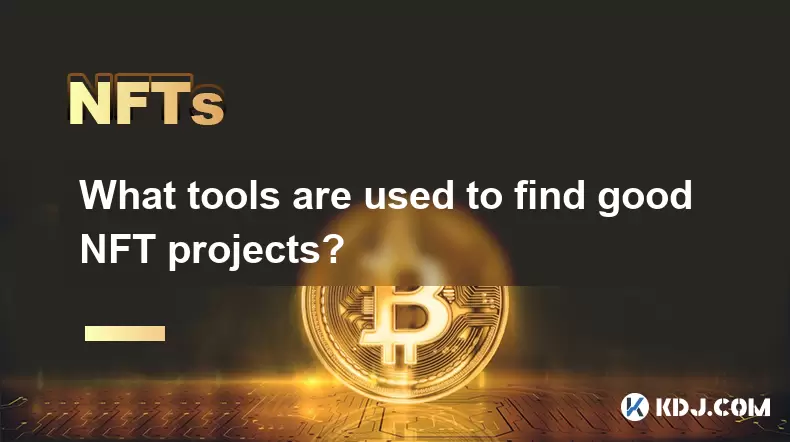
What tools are used to find good NFT projects?
Jul 10,2025 at 12:42pm
Understanding the Importance of NFT DiscoveryIdentifying promising NFT projects is a critical skill for collectors, investors, and creators within the...
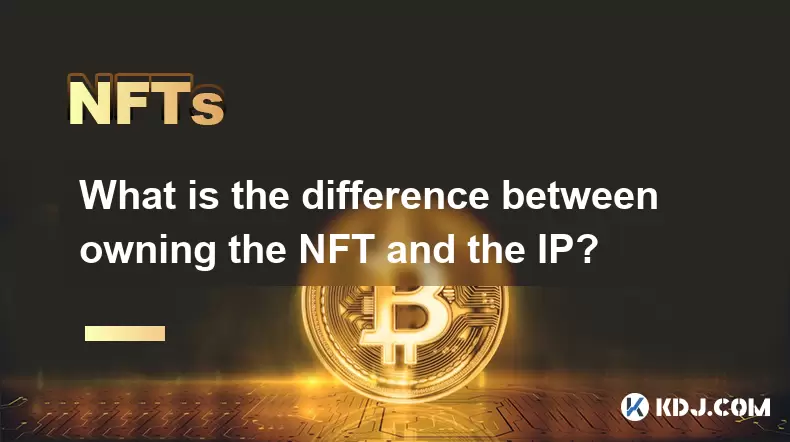
What is the difference between owning the NFT and the IP?
Jul 15,2025 at 07:28pm
Understanding the Concept of NFT OwnershipWhen someone purchases an NFT (Non-Fungible Token), they are acquiring a unique digital certificate that pro...

What is a blue chip NFT
Jul 17,2025 at 07:07am
Understanding the Concept of a Blue Chip NFTIn the world of non-fungible tokens (NFTs), certain digital assets stand out due to their consistent value...

What is the floor price of an NFT
Jul 11,2025 at 07:56am
Understanding the Concept of Floor Price in NFTsIn the world of non-fungible tokens (NFTs), the floor price refers to the lowest price at which a part...

What is the floor price of an NFT
Jul 13,2025 at 06:21am
Understanding the Concept of Floor Price in NFTsThe floor price of an NFT (Non-Fungible Token) refers to the lowest listed price for a particular NFT ...

What does it mean to mint an NFT
Jul 11,2025 at 11:56pm
Understanding the Concept of Minting an NFTTo mint an NFT means to create a unique digital asset on a blockchain. This process involves converting a d...

What tools are used to find good NFT projects?
Jul 10,2025 at 12:42pm
Understanding the Importance of NFT DiscoveryIdentifying promising NFT projects is a critical skill for collectors, investors, and creators within the...

What is the difference between owning the NFT and the IP?
Jul 15,2025 at 07:28pm
Understanding the Concept of NFT OwnershipWhen someone purchases an NFT (Non-Fungible Token), they are acquiring a unique digital certificate that pro...
See all articles
























